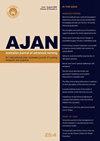健康睡眠与护理
IF 1.3
4区 医学
Q3 NURSING
引用次数: 0
摘要
新冠肺炎疫情增加并突出了日常护理需求和对睡眠的影响。1在疫情期间,医护人员和护理专业学生的睡眠障碍患病率分别为31%和27%,而普通人群的患病率为18%。2,3鉴于睡眠对认知、情绪和身体健康很重要,4,5睡眠对护士来说可能特别重要,护士是一个要求很高的职业,经常需要轮班工作,这是睡眠不足的一个已知风险因素。1,6研究支持睡眠对护士的重要性。7“9护士睡眠不足与生活质量下降、增重、高血压和糖尿病有关。7,8,10”12除了个人健康问题,睡眠不足也与医疗错误有关,13降低了工作效率9和消耗。14“16也许最令人担忧的是,研究表明,尽管长期部分睡眠不足会导致客观表现持续下降,但主观警觉性评分会下降。17这意味着睡眠不足的人对自己的表现受到了怎样的损害变得不太清楚,就像醉酒的人没有意识到自己的许多认知能力受到了损害一样d身体能力受损。18幸运的是,正在制定认识到睡眠重要性的健康计划来支持护士。有人认为,应该在护士职业生涯的早期制定促进健康和恢复力的策略。1然而,尽管人们越来越担心护士研究生期间睡眠不足,但其中许多举措都没有意识到睡眠的重要性。1最近一项针对韩国一家三级医院88名新毕业护士的研究表明,金和李发现,在护士轮班工作的前四个月里,主观睡眠质量显著下降,这与生活质量下降有关。23同样,多诺万和他的同事报告说,身心疲惫通常归因于护理和助产研究生期间的睡眠不足24爱泼斯坦及其同事也在研究生期间探索了睡眠,发现研究生护士应对疲劳的策略有限且可能适得其反。25在护理生涯中,睡眠不足是持续、恶化还是改善尚不清楚。新冠肺炎大流行期间护生心理健康问题和睡眠障碍的患病率:系统综述和荟萃分析。Sampson M,Melnyk B,Hoying J.新住院护士的MINDBODYSTRONG干预:6个月对心理健康结果、健康生活方式行为和工作满意度的影响。本文章由计算机程序翻译,如有差异,请以英文原文为准。
Healthy sleep and nursing
The COVID-ig pandemic has increased and highlighted the day-to-day demands of nursing and effects on sleep.1 During the pandemic, the prevalence of sleep disturbances among healthcare workers and nursing students was 31% and 27% (respectively), compared to 18% of the general population.2,3 Given that sleep is important for cognitive, emotional and physical wellbeing,4,5 sleep may be especially important for nurses - a demanding profession that often requires shift work - a known risk factor for poor sleep.1,6 Studies support the importance of sleep for nurses.7"9 Poor sleep has been associated with reduced quality of life, weight gain, hypertension, and diabetes among nurses.7,8,10"12 In addition to personal health concerns, poor sleep has also been associated with medical errors,13 reduced job productivity9 and burnout.14"16 Perhaps most concerning, studies suggest that although objective performance continues to decline with chronic partial sleep deprivation, subjective ratings of alertness level-off.17 This means that an individual who is sleep deprived becomes less aware of how their performance has been impaired, in much the same way that a person who is intoxicated does not realise many of their cognitive and physical abilities are compromised.18 Fortunately, wellness programs that recognise the importance of sleep are being developed to support nurses. There are thoughts that strategies to promote wellbeing and resilience should be developed early in a nurse's career.1 However, many of these initiatives fail to identify the importance of sleep despite growing concerns of poor sleep during the graduate nurse year.1 In a recent study of 88 newly graduated nurses working in a tertiary hospital in South Korea, Kim and Lee found a significant decline in subjective sleep quality over the first four months of undertaking shift work as a nurse, which was associated with a decline in quality of life.23 Similarly Donovan and colleagues reported emotional, physical and mental exhaustion was often attributed to sleep deprivation during the graduate year of nursing and midwifery24 Epstein and colleagues also explored sleep during the graduate year and found graduate nurses had limited and potentially counterproductive strategies to cope with fatigue.25 Whether poor sleep continues, worsens, or improves during the nursing career remains unclear. Prevalence of mental health problems and sleep disturbances in nursing students during the COVID-19 pandemic: a systematic review and meta-analysis. Sampson M, Melnyk B, Hoying J. The MINDBODYSTRONG intervention for new nurse residents: 6-Month effects on mental health outcomes, healthy lifestyle behaviors, and job satisfaction.
求助全文
通过发布文献求助,成功后即可免费获取论文全文。
去求助
来源期刊
CiteScore
2.30
自引率
7.10%
发文量
27
审稿时长
>12 weeks
期刊介绍:
The Australian Journal of Advanced Nursing publishes a wide variety of original research, review articles, practice guidelines, and commentary relevant to nursing and midwifery practice, health- maternity- and aged- care delivery, public health, healthcare policy and funding, nursing and midwifery education, regulation, management, economics, ethics, and research methodology. Further, the journal publishes personal narratives that convey the art and spirit of nursing and midwifery.
As the official peer-reviewed journal of the ANMF, AJAN is dedicated to publishing and showcasing scholarly material of principal relevance to national nursing and midwifery professional, clinical, research, education, management, and policy audiences. Beyond AJAN’s primarily national focus, manuscripts with regional and international scope are also welcome where their contribution to knowledge and debate on key issues for nursing, midwifery, and healthcare more broadly are significant.

 求助内容:
求助内容: 应助结果提醒方式:
应助结果提醒方式:


